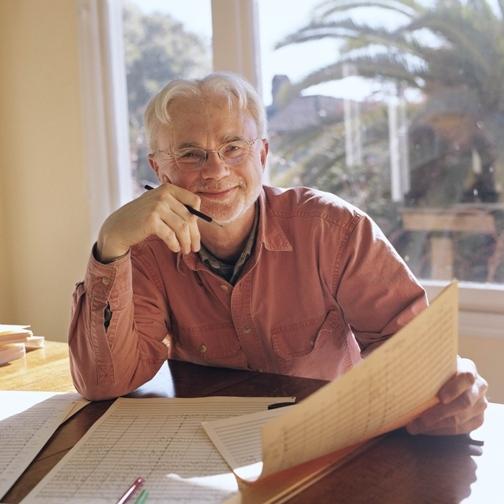Adams began with two Debussy preludes swept by a different kind of wind in Colin Matthews's ingenious, luminous orchestrations. Well, windswept was the idea, but there was no more elemental scouring here than by all accounts there had been in the Britten Sea Interludes from Peter Grimes on Sunday (interesting parallel programming, though). "Le vent dans la plaine" sounded more like an apiary of clockwork bees, droning away meticulously but with none of Debussy's dark undertow.
Ravel's even more gorgeous-unsettling Valses nobles et sentimentales might better have been conducted by the composer of A Little Night Music; for where Sondheim clearly understands the phantoms that connect and lurk behind this symphonic suite of waltzes, Adams kept losing the essential heartbeat, with odd black holes not just between movements but within them, too. It needed the gilded teasing of a master baton like that of Susanna Mälkki, who'd given us so much more pleasure and fright with La Valse back in January. You just had to take it on trust that the real work between Adams and a clearly admiring LSO had taken place in rehearsals, on textures which certainly sounded layered, if unenigmatic in Ravel's ghostly postlude.
Adams's generous and uniquely programmed first half then dropped the lacquer and drew its elegant knives in the Stravinsky concerto. It needs a pianist prepared to listen and react to the ensemble behind him, and Denk managed to do that as well as to respond, with what seemed like occasional surprise, to his own joyously hiccoughing Stravinskyan motor. If that meant extra pedal percussion to celebrate the unpredictable accents, then so be it. But he also brought his own individual sense of Bach-meets-jazz-impro with the airiest of flyaway adornments to the deadly serious Largo. (The LSO woodwind and brass must have felt redeemed from the last time they played this concerto, in a leaden collaboration between Gergiev and the elephantine Alexander Toradze.)
What an extraordinary work it is, and how much lies beneath the polished surface that even an umpteenth hearing is only beginning to uncover. Stravinsky's unique meetings of unexpected instruments are never quite the same from work to work. That's not the way of Adams himself these days. Yet if City Noir, hitting London for the first time after its American premiere under Dudamel, was more or less the luminous mixture as before, that dense texturing proved apt for a symphonic meditation on post-war Los Angeles. It culminates in yet another of those luridly, unpredictably pulsing finales we know so well from a masterpiece like Naive and Sentimental Music, reminding me how uneasily an all-Adams programme might have sat. Yet he remains true to his role as poet of those nocturnal songs which first haunted us in the first Emily Dickinson setting of Harmonium and the evasive last act of Nixon in China back in the 1980s. The LSO strings were the right players to handle these slinky melodies that insinuate themselves into the first-movement speed around the LA boulevards.
Throwing in a smoochy alto sax (Simon Haram), a trombone homage to Lawrence Brown and what Adams calls a "Chinatown" trumpet solo, eloquently taken by Roderick Franks at the incantatory start of the third movement, might have marked a new departure, but all are subsumed in the familiar Adams nightscape. Repetitious or just true to himself? I can't decide. What I do know is that the familiar Adams hallmark of flying, of moving onwards through space is something few of his contemporaries can master; maybe not even Stravinsky himself could do that in later years. Our most deservedly popular living composer has never lost the key to the fast machine that takes us on such magical mystery tours.
- Radio 3 broadcasts the concert on 17 March
- Check out what's on in the 2010 Edinburgh International Festival













Add comment